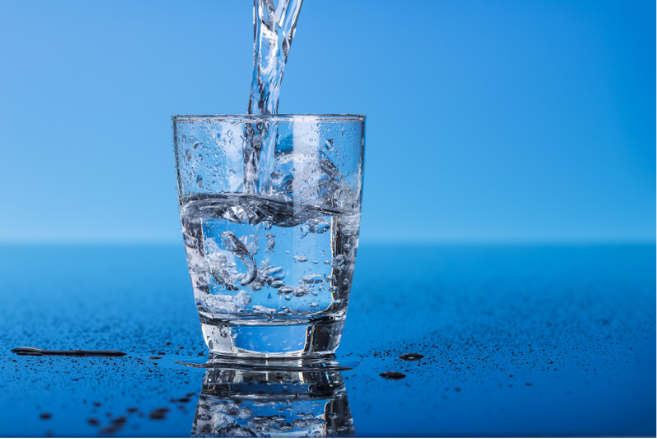Why a Water Purification System is Important for each Home
Why a Water Purification System is Important for each Home
Blog Article
Why a Water Purification System Is Essential for Tidy, Safe Water
Accessibility to clean, secure water is an essential human right and a cornerstone of public wellness. A water purification system stands as an essential service to alleviate these dangers, guaranteeing that neighborhoods and individuals can access secure alcohol consumption water.
Importance of Tidy Water
Access to clean water is a fundamental need for human wellness and health. It is important for sustaining life, sustaining health, and preserving total public health. Water Purification System. The accessibility of secure drinking water substantially decreases the danger of waterborne illness, which present a considerable threat to areas worldwide. Infected water can cause serious wellness concerns, consisting of gastrointestinal diseases, cholera, and dysentery, specifically in prone populations such as youngsters and the elderly.
Additionally, tidy water is crucial for cleanliness and health techniques, which are essential in preventing the spread of contagious illness. Sufficient water supports proper cleanliness centers, advertising a much healthier setting. In addition, accessibility to secure water influences socioeconomic variables, as it enables neighborhoods to engage in agricultural and industrial tasks, inevitably adding to financial growth.
In lots of areas, the absence of tidy water intensifies poverty and inequality, further impeding progression toward sustainable advancement objectives. As a result, making sure accessibility to tidy water is not only a public health important yet likewise a foundation for social equity and economic growth. Initiatives to boost water top quality and infrastructure have far-reaching advantages, promoting healthier areas and boosting quality of life.

Typical Contaminants in Water
Making certain the schedule of tidy water is undermined by different impurities that can compromise its safety and security and top quality. The existence of microorganisms, such as bacteria, bloodsuckers, and infections, postures considerable health threats, specifically in areas doing not have ample cleanliness. These bacteria can lead to waterborne conditions, resulting in serious disease or even death.
Chemical contaminants additionally offer a vital concern. Hefty steels, consisting of arsenic, mercury, and lead, commonly enter water materials via industrial discharges or rusty pipes. These compounds can build up in the body in time, resulting in long-lasting health and wellness problems such as neurological damage and developing disorders.
In addition, farming overflow introduces pesticides and plant foods right into water systems, which can interfere with ecological communities and adversely influence human health. Nitrates, generally found in plant foods, can cause severe conditions like methemoglobinemia, specifically in infants.
Benefits of Water Purification Systems
Acknowledging the important need for secure drinking water, water filtration systems offer a myriad of advantages that boost public health and ecological sustainability. Mostly, these systems successfully get rid of unsafe contaminants, including microorganisms, viruses, hefty steels, and chemicals, making sure that the water consumed is devoid of microorganisms and toxins. This reduction in impurities substantially lowers the danger of waterborne diseases, advertising general area health.
In enhancement to health benefits, water purification systems additional info add to environmental sustainability by decreasing reliance on bottled water, which often generates too much plastic waste. By making use of a purification system, houses can decrease their carbon impact and contribute to a more sustainable ecosystem. In addition, these systems can boost the taste and smell of water, making it more tasty for daily intake.

Different Types of Purification Techniques

One common technique is reverse osmosis, which utilizes a semi-permeable membrane layer to separate water from dissolved impurities and solids. This process effectively minimizes pollutants, including heavy metals and chemicals. One more extensively made use image source of technique is ultraviolet (UV) disinfection, which employs UV light to neutralize bacteria and viruses, rendering them safe without the use of chemicals.
Activated carbon filtration is one more preferred approach, making use of carbon to adsorb natural substances, chlorine, and unpleasant smells, improving preference and smell top quality. Distillation, a procedure that involves boiling water and condensing the vapor, successfully gets rid of minerals and contaminants but might require more power compared to other methods.
Ion exchange is typically utilized to soften water by replacing calcium and magnesium ions with salt or potassium ions. Each method has its advantages and constraints, making it essential to recognize their functionalities and efficiency in resolving certain water high quality problems - Water Purification System. Ultimately, picking the suitable purification technique is important for making sure clean and risk-free drinking water
Choosing the Right System
Choosing an appropriate water purification system requires cautious consideration of various aspects, including the details impurities existing in the supply of water, the volume of water needed, and the wanted purification approach. It is necessary to conduct a water quality examination to recognize impurities such as germs, hefty steels, or chemical pollutants. This details will lead you in picking a system that successfully targets those details impurities.
Following, examine your household's day-to-day water usage to establish the system's ability. Equipments are offered in various dimensions, from point-of-use filters for alcohol consumption water to whole-house units that purify all water entering your home.
Moreover, consider the purification approach that ideal fits your demands. Reverse osmosis is extremely effective for removing a vast variety of contaminants, while UV filtration is exceptional for eliminating microbes.
Conclusion
Finally, the application of water filtration systems is critical for making sure access to clean and safe water. These systems efficiently eliminate damaging pollutants, thus decreasing the threat of waterborne diseases and improving public health and wellness. They add to environmental sustainability by minimizing reliance on bottled water. By comprehending the value of clean water and the benefits of various purification techniques, areas can make educated decisions to guard their health and wellness and advertise socioeconomic security.
Identifying the critical demand for safe alcohol consumption water, Read Full Report water filtration systems offer a myriad of advantages that improve public wellness and ecological sustainability.In addition to wellness benefits, water purification systems contribute to ecological sustainability by minimizing reliance on bottled water, which usually produces too much plastic waste. Eventually, the fostering of water purification systems is a proactive step towards ensuring clean, secure water for future generations while protecting public health and the setting.
Choosing an ideal water purification system calls for mindful consideration of various aspects, consisting of the certain pollutants present in the water supply, the quantity of water required, and the desired filtration approach.In final thought, the application of water purification systems is vital for guaranteeing accessibility to risk-free and tidy water.
Report this page